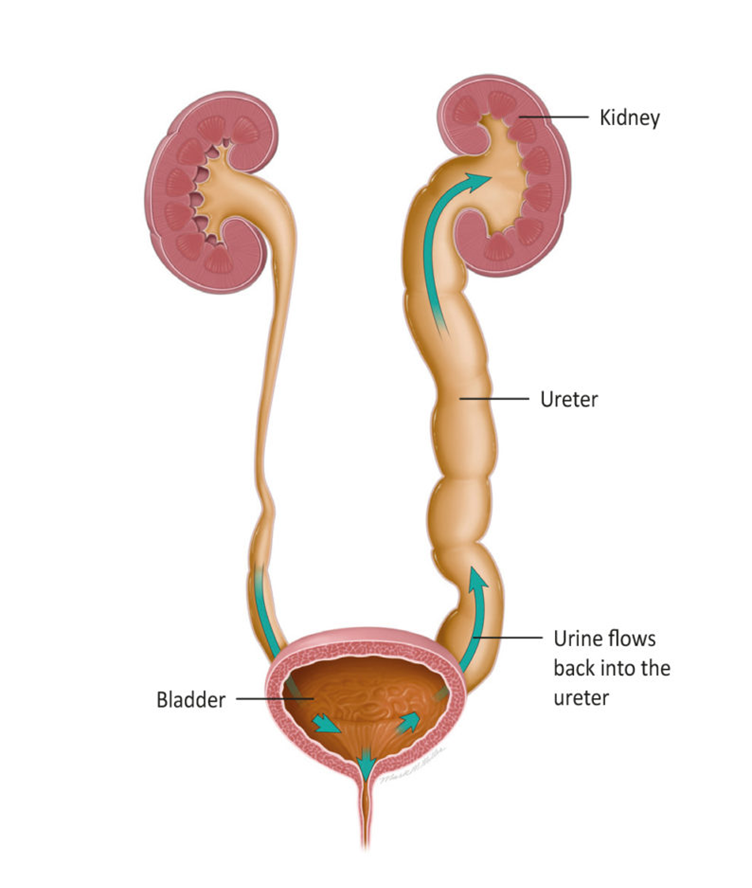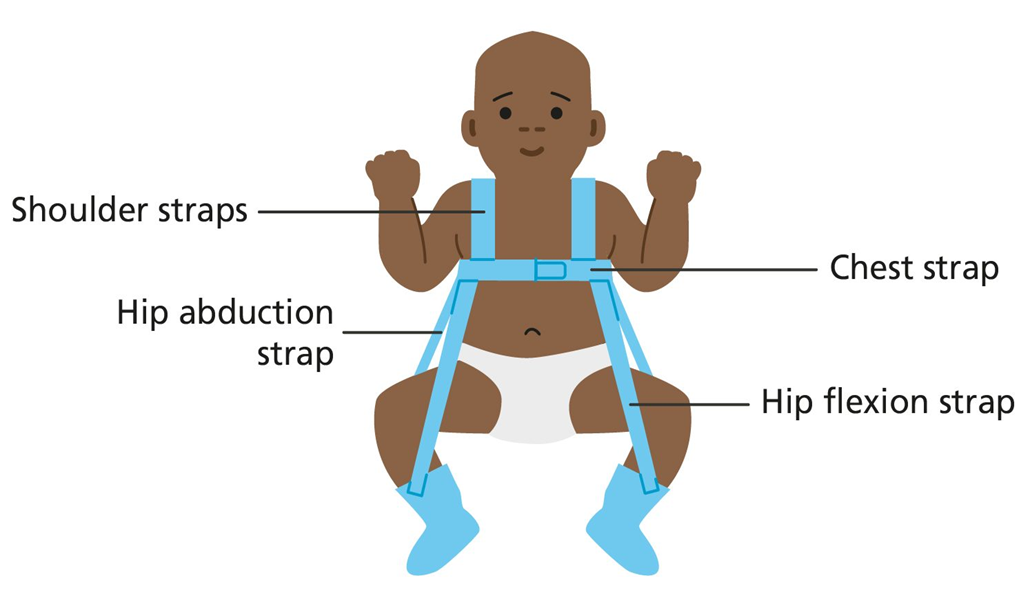A young child is diagnosed with vesicoureteral reflux. The nurse should know that this usually leads to:
Infarction of the renal vessels
Renal calculi
Urinary obstruction
Recurrent kidney infections
The Correct Answer is D
The correct answer is d) Recurrent kidney infections.
Choice A reason:
Infarction of the renal vessels is not a common consequence of vesicoureteral reflux (VUR). Infarction refers to tissue death due to a lack of blood supply, which is not typically associated with VUR1. VUR primarily affects the urinary tract, leading to the backward flow of urine from the bladder into the ureters and kidneys. This condition can cause other complications, but infarction of the renal vessels is not one of them.
Choice B reason:
Renal calculi, or kidney stones, are not directly caused by vesicoureteral reflux. While VUR can lead to urinary tract infections (UTIs), which may increase the risk of developing kidney stones, it is not the primary outcome. Kidney stones are typically formed due to an imbalance of minerals and salts in the urine, leading to crystallization. VUR itself does not directly cause the formation of renal calculi.
Choice C reason:
Urinary obstruction is not a typical result of vesicoureteral reflux. VUR involves the backward flow of urine, but it does not usually cause a physical blockage in the urinary tract. Urinary obstruction can occur due to other conditions, such as congenital abnormalities, tumors, or kidney stones, but it is not a direct consequence of VUR.
Choice D reason:
Recurrent kidney infections are a common complication of vesicoureteral reflux. The backward flow of urine can carry bacteria from the bladder into the kidneys, leading to repeated episodes of pyelonephritis (kidney infection). These recurrent infections can cause kidney damage over time if not properly managed. Therefore, it is crucial to monitor and treat VUR to prevent recurrent kidney infections and preserve kidney function.

Nursing Test Bank
Naxlex Comprehensive Predictor Exams
Related Questions
Correct Answer is B
Explanation
Choice A reason:
Removing the harness several times a day is not recommended. The Pavlik harness should be worn continuously as prescribed by the doctor to ensure proper hip development. Removing it frequently can disrupt the treatment and may lead to complications.
Choice B Reason:
Placing a superabsorbent disposable diaper over the harness is important to keep the harness clean and dry. This helps prevent skin irritation and maintains hygiene. It is essential to ensure that the diaper is properly positioned to avoid any interference with the harness.

Choice C Reason:
Returning to the clinic every 12 weeks for adjustment of the harness is not accurate. Typically, follow-up visits are more frequent, especially in the initial stages of treatment. Regular adjustments are necessary to ensure the harness is fitting correctly and effectively promoting hip development.
Choice D Reason:
Applying lotion or powder to minimize skin irritation is not recommended. Lotions and powders can accumulate and cause further irritation or infection. Instead, keeping the skin clean and dry is the best way to prevent irritation while using the Pavlik harness.
Correct Answer is C
Explanation
Choice A reason:
Walnuts are a source of protein and contain phenylalanine, an amino acid that individuals with phenylketonuria (PKU) must limit in their diet. While nuts can be a healthy snack for most people, they are not suitable for those with PKU due to their high phenylalanine content. Therefore, walnuts are not the best choice for children with PKU.
Choice B reason:
Cow’s milk is another source of protein and contains significant amounts of phenylalanine. Dairy products, including milk, cheese, and yogurt, are generally high in protein and should be avoided by individuals with PKU. Consuming cow’s milk can lead to elevated levels of phenylalanine in the blood, which can be harmful to children with PKU.
Choice C reason:
Bananas are a fruit that contains very low levels of phenylalanine. Fruits and vegetables are generally safe for individuals with PKU as they are low in protein and phenylalanine. Bananas, in particular, are a good option for children with PKU as they provide essential nutrients without contributing to high phenylalanine levels.
Choice D reason:
Diet soda with aspartame should be avoided by individuals with PKU because aspartame is an artificial sweetener that contains phenylalanine. Consuming products with aspartame can lead to an increase in phenylalanine levels in the blood, which can be harmful to those with PKU. Therefore, diet soda with aspartame is not a suitable choice for children with PKU.
Whether you are a student looking to ace your exams or a practicing nurse seeking to enhance your expertise , our nursing education contents will empower you with the confidence and competence to make a difference in the lives of patients and become a respected leader in the healthcare field.
Visit Naxlex, invest in your future and unlock endless possibilities with our unparalleled nursing education contents today
Report Wrong Answer on the Current Question
Do you disagree with the answer? If yes, what is your expected answer? Explain.
Kindly be descriptive with the issue you are facing.
